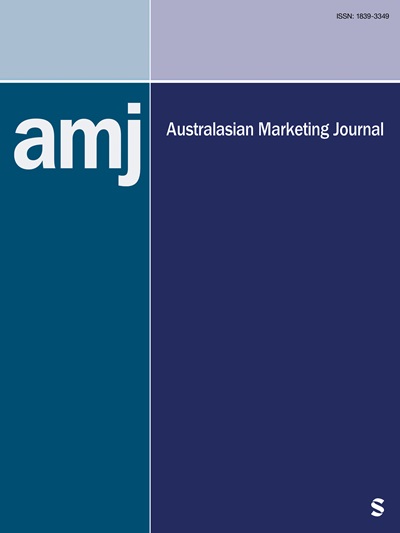Does External Attribution Motivate Pessimistic Consumers to Purchase Organic Cosmetics?
IF 4
Q2 BUSINESS
引用次数: 6
Abstract
With the increased focus on environmental preservation and consumer well-being, the sale of organic cosmetics across the globe is gradually increasing. However, consumer hesitancy exists due to the nascent stage of the organic cosmetic market. The current study investigates the role of external attribution in increasing pessimistic consumers’ organic purchase behaviour and subjective well-being. It also examines how consumers’ purchase behaviour of organic cosmetics mediates the hypothesised relationships. The proposed conceptual model is grounded in the Conservation of Resources (COR) theory and tested through data from 613 consumers from Amazon MTurk. We found that pessimistic consumers do not purchase organic cosmetics, which, in turn, reduces their subjective well-being. However, external attribution significantly and positively moderates the negative influence of consumers’ pessimism on their purchase behaviour of organic cosmetics and their subjective well-being. In addition, we discovered that pessimistic consumers could conserve their psychological resources through external attribution, helping them reduce their scepticism towards organic cosmetics and adopt such products. Furthermore, the study’s findings highlight the need for managers to develop effective marketing strategies that increase pessimistic consumers’ well-being. Particularly, marketing strategies that emphasise the environmental and health benefits of using organic cosmetics over conventional cosmetics should be devised.外部归因是否会促使悲观的消费者购买有机化妆品?
随着对环境保护和消费者福祉的日益关注,全球有机化妆品的销量正在逐渐增加。然而,由于有机化妆品市场处于初级阶段,消费者存在犹豫。本研究探讨了外部归因在悲观消费者有机购买行为和主观幸福感增加中的作用。它还研究了消费者购买有机化妆品的行为如何调解假设的关系。提出的概念模型以资源保护(COR)理论为基础,并通过来自Amazon MTurk的613名消费者的数据进行了测试。我们发现悲观的消费者不购买有机化妆品,这反过来又降低了他们的主观幸福感。而外部归因显著正向调节消费者的悲观情绪对其购买有机化妆品行为和主观幸福感的负面影响。此外,我们发现悲观的消费者可以通过外部归因保存他们的心理资源,帮助他们减少对有机化妆品的怀疑态度,并采用有机化妆品。此外,研究结果强调,管理者需要制定有效的营销策略,以提高悲观消费者的幸福感。特别是,应该制定营销策略,强调使用有机化妆品比使用传统化妆品对环境和健康的好处。
本文章由计算机程序翻译,如有差异,请以英文原文为准。
求助全文
约1分钟内获得全文
求助全文
来源期刊

Australasian Marketing Journal
BUSINESS-
CiteScore
14.90
自引率
16.70%
发文量
25
期刊介绍:
The Australasian Marketing Journal (AMJ) is the official journal of the Australian and New Zealand Marketing Academy (ANZMAC). It is an academic journal for the dissemination of leading studies in marketing, for researchers, students, educators, scholars, and practitioners. The objective of the AMJ is to publish articles that enrich and contribute to the advancement of the discipline and the practice of marketing. Therefore, manuscripts accepted for publication will be theoretically sound, offer significant research findings and insights, and suggest meaningful implications and recommendations. Articles reporting original empirical research should include defensible methodology and findings consistent with rigorous academic standards.
 求助内容:
求助内容: 应助结果提醒方式:
应助结果提醒方式:


